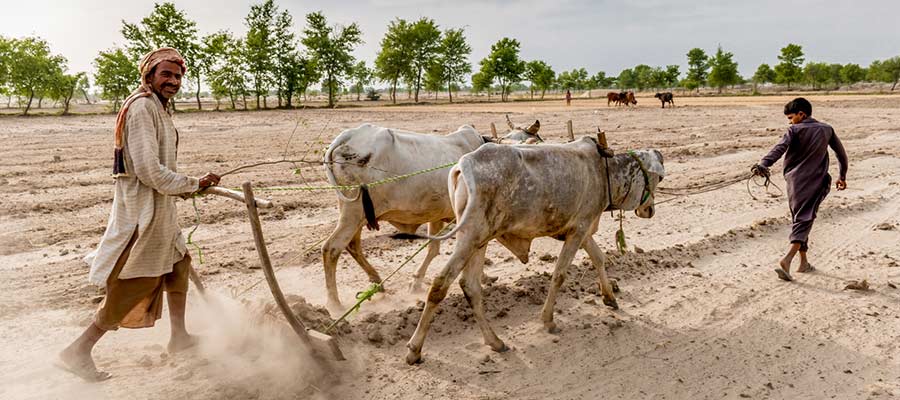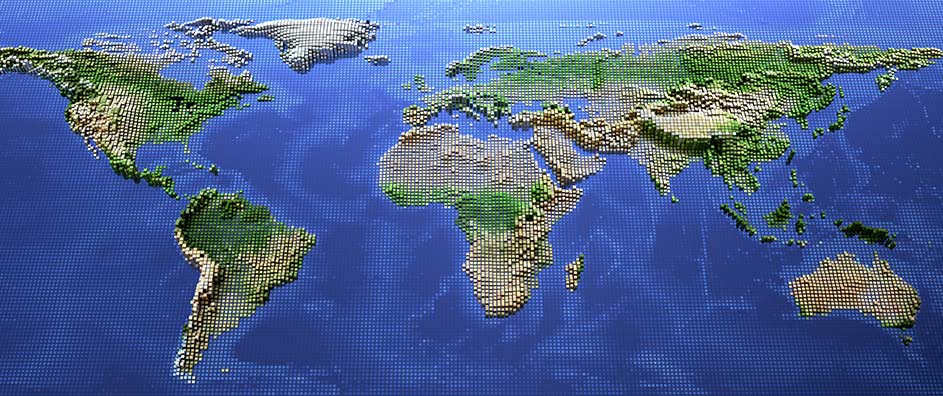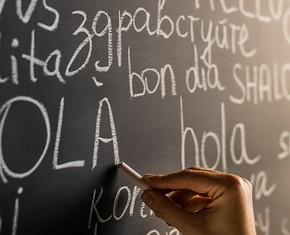The views expressed in our content reflect individual perspectives and do not represent the authoritative views of the Baha'i Faith.
Lately I’ve been reading about blockchains — what they are, what they do and most importantly, how they might help the world.
Have you heard of blockchain technology? Basically, it lets people who don’t know or trust each other build a dependable ledger, a time-stamped record of secure online transactions. Blockchains accurately record each individual transaction on multiple computers in a single “block” of data, which can’t be altered retroactively. Potentially used for a wide variety of applications — financial transactions, the transfer of real property, even voting — its decentralized digital ledger ensures the ongoing integrity of any chain of transactions.
Cryptocurrencies like Bitcoin and others use blockchain technology to record and verify all of their transactions, and have become more popular around the world as a medium of exchange that needs no intermediary like a bank or a broker.
Every participant in a blockchain can authenticate, verify and audit every previous transaction, openly and inexpensively. What banks and financial institutions used to do — sometimes well, sometimes not so well and sometimes even fraudulently — crowdsourced wisdom and honesty could conceivably soon replace. Since just about everyone in any series of transactions wants them to be truthful, aboveboard and transparent, you could describe blockchains as an open-source, collaborative way of making sure everyone deals with everyone else honestly. The technology establishes universal trustworthiness, all guaranteed by the sequential nature and open design of the process itself.
RELATED: How Do We Really End Corruption?
Blockchain technology has remarkable potential — fully developed and utilized, it could create entirely new foundations for global financial, economic and social systems.
Can you see how blockchains might help change the world? The Baha’i teachings allude to this concept in the writings of Shoghi Effendi, the Guardian of the Baha’i Faith, who wrote in 1938 that:
The unity of the human race, as envisaged by Baha’u’llah, implies the establishment of a world commonwealth in which all nations, races, creeds and classes are closely and permanently united, and in which the autonomy of its state members and the personal freedom and initiative of the individuals that compose them are definitely and completely safeguarded …. A mechanism of world inter-communication will be devised, embracing the whole planet, freed from national hindrances and restrictions, and functioning with marvellous swiftness and perfect regularity. A world metropolis will act as the nerve center of a world civilization, the focus towards which the unifying forces of life will converge and from which its energizing influences will radiate. A world language will either be invented or chosen from among the existing languages and will be taught in the schools of all the federated nations as an auxiliary to their mother tongue. A world script, a world literature, a uniform and universal system of currency, of weights and measures, will simplify and facilitate intercourse and understanding among the nations and races of mankind. … The economic resources of the world will be organized, its sources of raw materials will be tapped and fully utilized, its markets will be coordinated and developed, and the distribution of its products will be equitably regulated.
Part of Shoghi Effendi’s vision of the future of our planet has already come true — that “mechanism of world inter-communication” exists now, although we still have a way to go before it operates with perfect regularity and is “freed from national hindrances and restrictions.”
Today, though, people all over the globe are busy working on one of the most ambitious and futuristic descriptions of the coming age that the Baha’i teachings offer — “a uniform and universal system of currency” which “will simplify and facilitate intercourse and understanding among the nations and races of mankind.” That system, which could be based around the blockchain concept, would help democratize the global economy; attack the world’s persistent social and economic inequalities; root out hidden criminal wealth; prevent fraud, tax evasion and money laundering; and even revolutionize the way the world deals with poverty and hunger.
For example: the UN’s World Food Programme (WFP) has recently begun using blockchain technology to securely and transparently distribute immediate cash assistance to hungry people in remote and difficult-to-access parts of the world. The WFP’s pilot blockchain program, called Building Blocks, is demonstrating how blockchain can empower humanitarian organizations to quickly and safely send monetary aid to undeveloped regions and nations.
This means that the WFP has fundamentally changed its approach to feeding the hungry — instead of just donating and delivering food, with its many expensive logistical complexities, the WFP distributes cash assistance securely to the people who need it most.
RELATED: 7 Baha’i Economic Principles that Will Feed the Poor
That direct distribution of funds used to be impossible, because of the corruption inherent in various governments, militaries, banking systems and political factions in places where conflict, famine or natural disasters occurred. Often, when donations of relief supplies like food or medicine arrived in those places, they would be confiscated or stolen and then sold on the open market, never reaching their intended recipients.

In its initial testing, the WFP implemented the first phase of their Building Blocks project in Pakistan in January, 2017, as part of an effort that explored better, cheaper, and less risky means to deliver cash-based transfers. The transparency and security of blockchain technology eliminated the fear of potential misappropriation of funding or tampering with transactions. As WFP launched Building Block’s first stage, vulnerable families in Pakistan received food and cash assistance immediately. WFP staff authenticated and recorded each transaction with a smartphone using the Ethereum blockchain, which tracked and verified the fact that families received their emergency funds, and could even confirm that the funds were spent for food.
With this example in mind, and with blockchain’s potential to revolutionize humanitarian assistance, NGOs could begin widely utilizing this promising new technology as a way of disseminating cash assistance—and also initiate the next major step toward fulfilling the Baha’i promise of a universal and uniform system of currency and its equitable distribution around the world.
















Comments
Sign in or create an account
Continue with Googleor